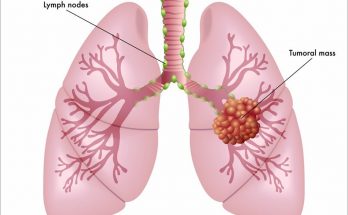Chronic obstructive pulmonary disease, or COPD, is a very serious disease of the lung that develops over the course of many years, usually as a result of smoking.
COPD is the fourth leading cause of death in the United States and is also the result of many long term cases of disability.
One person in the U.S. dies from COPD every four minutes and more than twelve million people are diagnosed with COPD every year (although it is thought that as many as twelve million more have COPD but go undiagnosed). COPD is usually used to describe a duo of two diseases, chronic bronchitis and emphysema. Chronic bronchitis causes is characterized by inflammation and excess mucus in the lungs that restrict the flow of air, which makes it difficult to breathe. Emphysema occurs when the air sacs in the lung that allow the movement of air into and out of the lung become damaged and are unable to stretch as they normally would – which leads to emphysema’s tell-tale shortness of breath.
COPD prognosis is usually dependent upon whether or not the COPD sufferer continues to cause repeated damage to their lungs by smoking. Breathing tests determine the severity of COPD and can determine the mortality rate of the COPD patient by the level of impairment of lung function that is present. Stopping smoking can greatly improve theprognosis of COPD.
COPD Progressive Conditions
As COPD progresses, COPD prognosis can be hindered by various conditions that develop as a direct result of COPD, including:
- Pulmonary hypertension and right-sided heart failure, also known as Cor Pulmonale. The COPD patient’s heart must work much harder than it would in a normal person without the disease; this is especially true of the heart’s right side, which is responsible for pumping blood into the lungs. Poor gas exchange within the body caused by COPD results in a decrease in the amount of oxygen in the blood, which causes constriction of the blood vessels. In addition, COPD can destroy or damage the capillaries that surround the alveoli as the disease progresses, which makes the heart work even harder in order to force blood through already constricted (and fewer) blood vessels; this added stress can cause enlargement of the right ventricle of the heart, which in turn, thickens and loses its ability to contract appropriately – which is, in a nutshell, right sided heart failure. Edema (swelling) usually accompanies pulmonary hypertension and right sided heart failure.
- Acute exacerbations. A very rapid or abrupt increase in the symptoms of COPD is known as acute exacerbations, usually characterized by cough, increase in mucus and sputum, wheezing and dyspnea (shortness of breath). Acute exacerbations can be brought on by bronchial infection. Some COPD sufferers may never breathe independently again after a severe acute exacerbation.
- End stage lung disease. Respiratory failure is the final stage of COPD, which is also called end stage lung disease. A slow decline in the functioning of the lung and elevating levels of carbon dioxide in the blood are indicators of end stage lung disease. This increase in carbon dioxide in the COPD sufferer’s blood has a narcotic effect on the patient, who will lose consciousness slowly and then just stop breathing. Respiratory failure can occur not only in end stage lung disease patients, but also during acute exacerbations of COPD.
- Pneumonia. COPD patients are at an elevated risk of developing pneumonia due to the weakened state of their lungs. The most common strain of bacterial pneumonia in those suffering from COPD is streptococcus pneumonia.
- Pneumothorax. Patients who are afflicted with COPD are at an increased risk for the spontaneous development of holes in the lung, which is known as pneumothorax. These holes allow air to escape into the space between the chest wall and lung, which leads to what is commonly referred to as a “collapsed” lung.
Improving COPD Prognosis
It cannot be stressed enough for those patients who have COPD due to smoking that quitting smoking is the only way to see a marked improvement in the symptoms of the disease. Smoking cessation is not an easy feat to accomplish, but can be done. Quitting smoking will not only slow the progression of COPD and give you a better COPD prognosis, but will also help prevent the onset of COPD in the first place.
